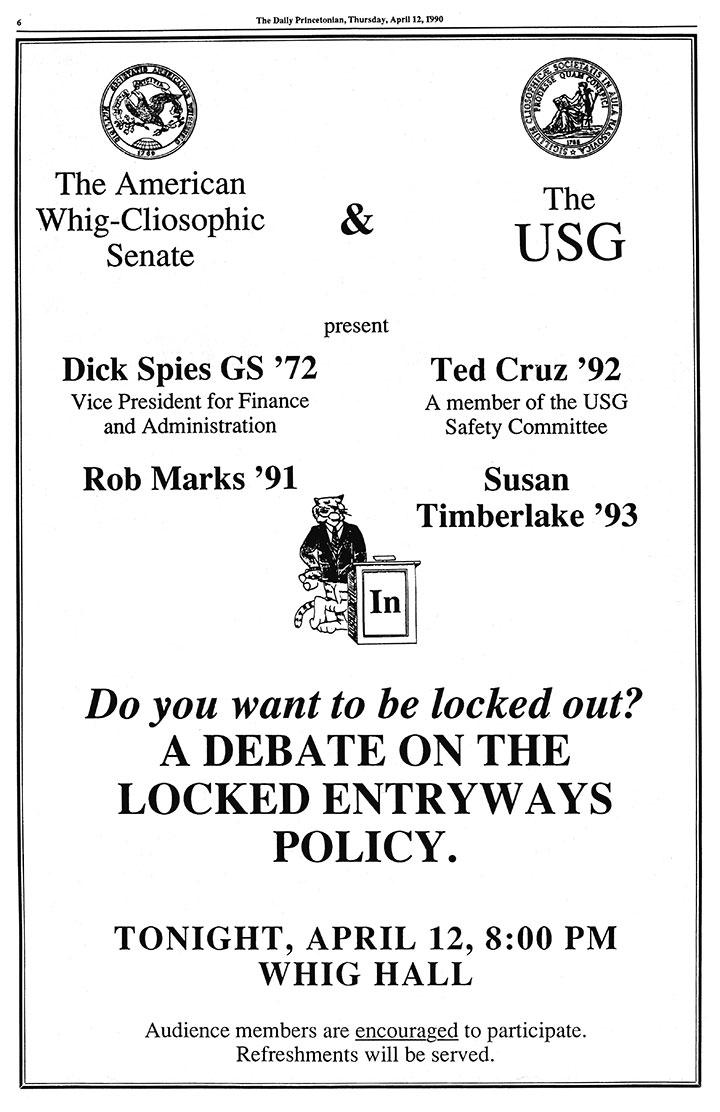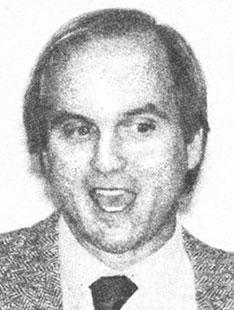
To lock or not to lock — that was the question when Dick Spies *72, then Princeton’s vice president for finance and administration, and Ted Cruz ’92 headlined a debate on the merits of securing dormitory entryways April 12, 1990.
Provocatively titled “Do You Want to Be Locked Out?” the debate, sponsored by the American Whig-Cliosophic Society and the Undergraduate Student Government, highlighted the divergent views of Princeton’s administration and most students, who anticipated more headaches than peace of mind in Spies’ plan to limit dormitory access.
Cruz had already signaled his opposition by co-authoring a statement asserting that entryway locks would “cost a great deal, inconvenience the students, and damage the reputation of the university in exchange for limited benefits.” On the night of the debate, in an interview with The Daily Princetonian, he argued that the University’s focus was misplaced, contending that the administration’s “concern for external crime is replacing concern for internal crime” and that the “greater problem is date rape, or assaults by other students, which the planned system would do nothing to stop.”
Spies acknowledged that entryway locks were not a “panacea” but cited 64 reports of dormitory “intruders” in 1989, a group that included four with outstanding warrants. “It seems as if we’ve been lucky,” he told The Prince, “and I don’t think we can continue to count on luck.” And he asserted that his opponents “still have not been able to show me why the system won’t work.”
If Spies was unmoved, so was Cruz, whose team carried the debate by a vote of 46–11. In May, as the University hosted security-system vendors with the goal of piloting “proximity sensors” at Forbes College in September, Cruz declared, “I still think locking entryways is a bad idea.” But as PAW’s Matthew Henshon ’91 dryly noted, “The one man whose opinion matters appears to have more or less made up his mind.” And that man was Spies.
John S. Weeren is founding director of Princeton Writes and a former assistant University archivist.

